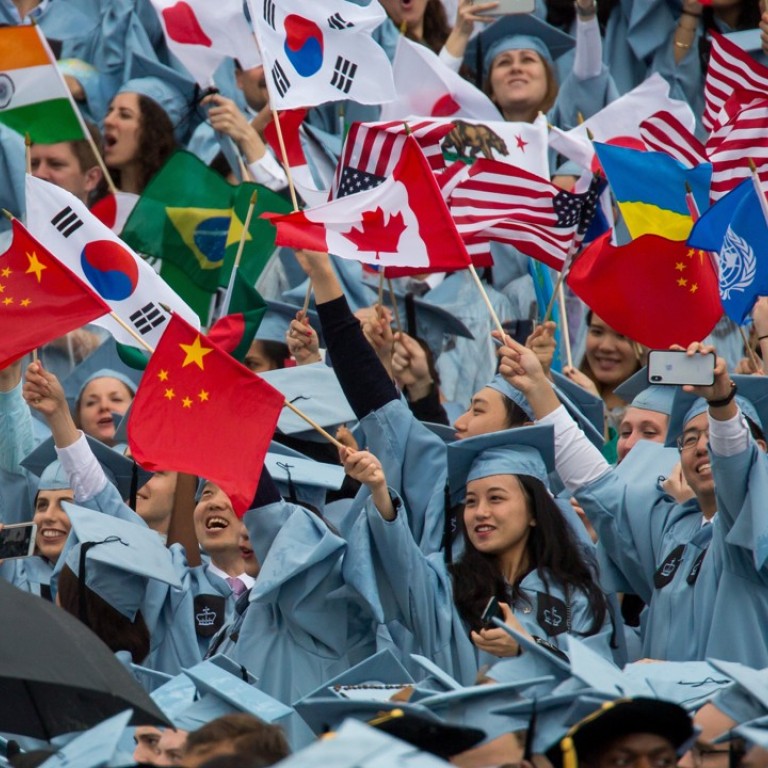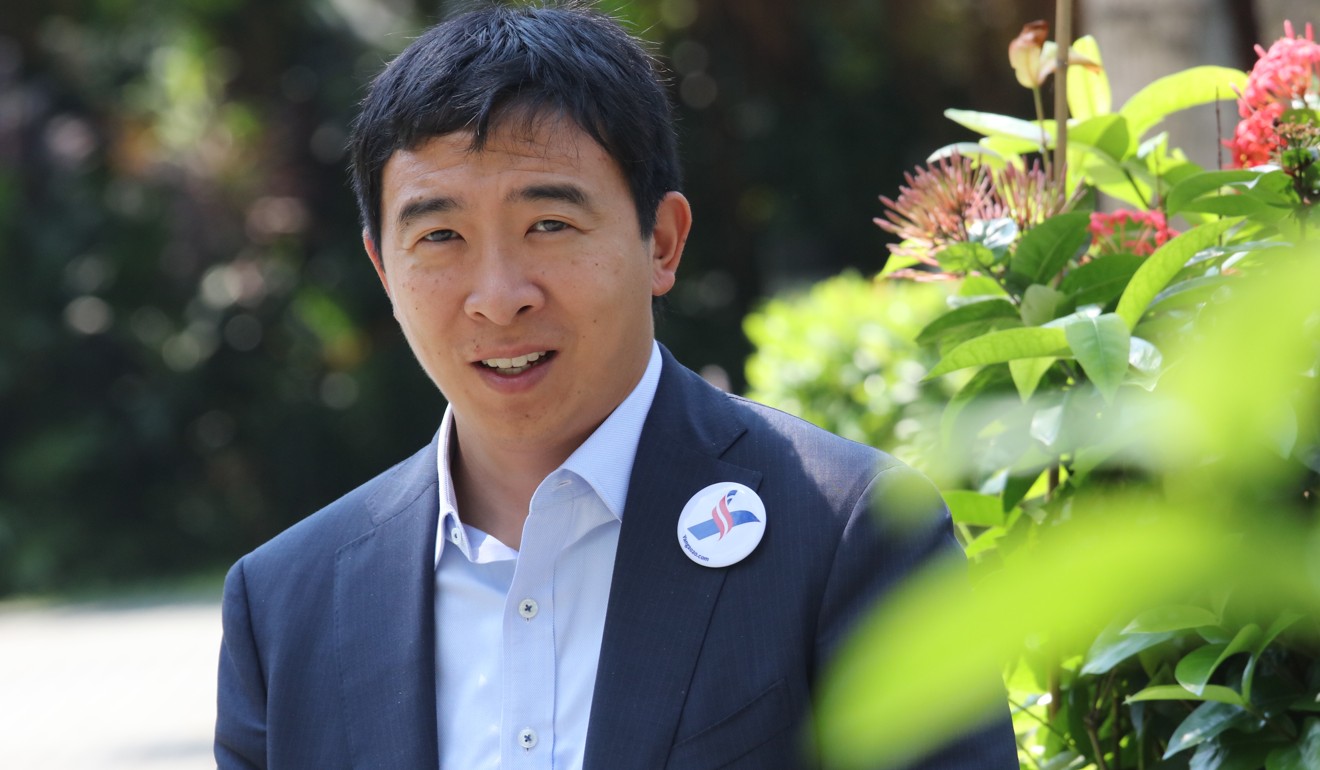
Every international student will get a green card, says US presidential hopeful Andrew Yang
Democrat would open door much wider after Donald Trump administration’s tighter controls on visas for Chinese citizens and foreign students
The man who hopes to become the first Asian-American president of the United States has vowed to welcome immigrants into the country with open arms if he wins a race against incumbent Donald Trump, who two years ago ran a campaign with tough immigration policies as its centrepiece.
Andrew Yang, the American son of Taiwanese immigrants who has announced his intention to run the race in 2020 as a Democrat candidate, has called the current US immigration system “ridiculous” and said he would like to see more immigrants into the country.
“I would staple a green card to the diploma of any international student who graduates from an American university,” Yang said as he spoke to the South China Morning Post on Monday.
“It makes no sense to have people come, learn at our universities and then go back to their own countries to work and eventually compete against us.”
When trade tensions between Washington and Beijing began boiling over, the Trump administration made it harder for Chinese students in particular to renew their visas.
Since June 11, Chinese postgraduates studying in the US in fields such as robotics, aviation and hi-tech manufacturing have been limited to one-year visas. Associated Press has reported that Chinese citizens seeking visas need special clearance from multiple US agencies if they work as researchers or managers for companies on a US Commerce Department list of entities needing higher scrutiny.
Currently, a third of foreign students in US universities are from China. Trump sees a tightened visa policy for Chinese students as a measure to protect American intellectual property, and to counter Beijing’s “Made in China 2025” plan to dominate the world’s science and technology fields.
On top of that, the US faces one of the world’s most complex immigration challenges, with an estimated 11 million undocumented immigrants and over 4 million foreign nationals waiting for a green card to become a permanent resident as of last November.
Trump has been tightening overall US immigration policies since he took office in January 2017, citing security concerns. Yet Yang – who is a long shot to win the presidency with zero political experience and a lack of backing from big names – has decided to go against the current climate and advocate the opposite.
“I’m a child of immigrants – my parents came to the US in the 1960s – and so I know the dynamism and energy and innovation that immigrants can bring,” Yang said.
“A majority of the entrepreneurs in Silicon Valley are either immigrants or children of immigrants, so we need to compete for talent at the highest levels in the world. We need to say that the United States is where you should come if you want to build a business and a career, and eventually a future, and a family for yourself.”
Yang also said he wanted to overhaul the H-1B and F-1 visa programmes, which allow foreigners to temporarily work and study in the United States. Trump has particularly derided the H-1B – which issues a capped number of visas through a lottery system – but many companies, especially those in Silicon Valley, argue reform is needed to expand the system.
“I have so many friends who are now just getting into the system, and it’s ridiculous,” Yang said. “If you’re running a company, you have to play all these games to try to get people in and keep them, so I would dramatically overhaul and expand those programmes.”

Yang plans to run his campaign on a much softer approach towards China, compared with Trump, who won his election while calling China a “currency manipulator” and has continued saying into his presidency that China has engaged in unfair trade practices.
“I think there are some elements that clearly could be improved from the American perspective and that’s something that one should explore, but the way to explore it is not by just starting a trade war that ends up hurting both sides,” he said.
The Asian-American community accounts for 5.6 per cent of the 325.7 million US population, and Yang is confident of winning its support.
“I think there is something essential about the pride of people who come from the same roots; you feel they understand your life and culture better,” he said.
Yang added that the Chinese government could find him an easier person to talk to, despite his claim to speak only very “shoddy” Mandarin.
“I think if I were the president, there would be a real interest and eagerness on the part of China to overhaul the relationships between the two countries,” he said, “because I believe I understand the Chinese mindset and approach much more than other American leaders would have in the past.”
Additional Reporting by Sarah Zheng

